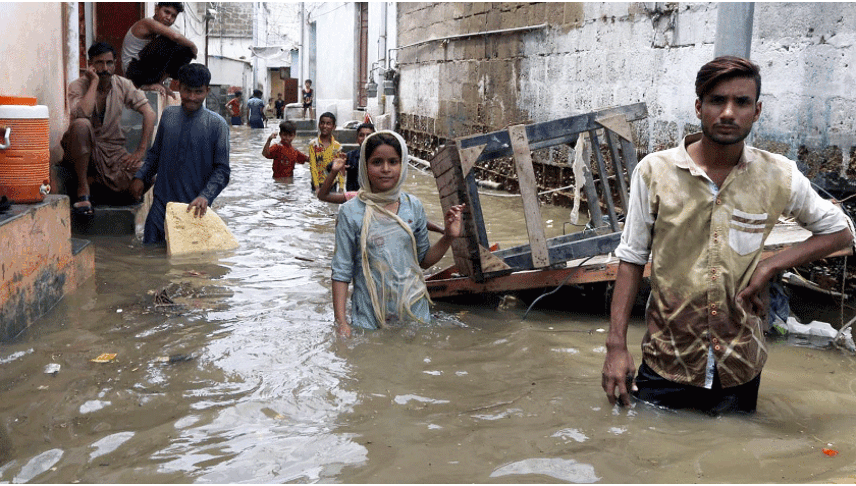Register for free and continue reading
Join our growing army of changemakers and get unlimited access to our premium content

Image: Christian Aid
At COP27 in Egypt late last year, nations agreed to create a dedicated fund to support nations experiencing physical climate impacts. The fund will be used to rectify losses and damages resulting from extreme weather events, be they prolonged, like the drought currently affecting the Horn of Africa, or one-off, such as tsunamis.
Climate-vulnerable countries had been calling for the fund since the 1990s, but wealthy nations including the UK, EU and US had been blocking progress until 2022. Last year, the EU made a U-turn, with the support of other G77 nations. A key point of contention was whether rapidly emerging economies like China and India should pay into the fund, or receive money out of it.
Most nations in the Global North are still shaping up plans regarding how much they will pay in and how this money will be raised.
Christian Aid has today (12 May) set out a new report assessing the UK’s options for paying its fair share. It prices the UK’s contribution at $15bn each year (around £12.57bn) from 2030. This would see the UK making 3.5% of the overall global contribution.
Two of the options set out involve taxing fossil fuel majors, given their historic and ongoing contribution to the climate crisis.
The UK could either maintain its Energy Profits Levy at current levels, so that oil and gas firms give up 65% of profits as tax, or increase the overall threshold to 95% of profits. The former option would raise £5bn per year and the latter would raise £13bn.
The Energy Profits Levy is sometimes known as the windfall tax. It has been implemented in response to the energy price crisis, which have seen fossil fuel firms recording record profits. These firms usually pay a tax rate of 40%, and the levy increases this to 65%.
Extending the levy would not cover the UK’s loss and damage fund bill in full. The Christian Aid report sets out how it will need to be combined with the existing Air Passenger Levy and either the Emissions Trading Scheme or an expanded financial Transition Tax.
The Air Passenger Levy currently generates around £3.5bn a year and an expansion could increase this amount. Both of the latter options, Christian Aid estimates, generate between £6bn and £6.5bn annually.
Wealth tax
Another option floated in the report is bypassing taxes on the private sector and going for individual taxation on the wealthy.
It sets out how, by taxing those with wealth exceeding £1m at a rate of 0.5%, the UK could raise in the region of £15bn per year. The tax would affect just over three million people out of the UK’s population of 67.3 million.
This idea will doubtless prove unpopular with the current Conservative government. Christian Aid’s argument for this approach is that it is targeted not only at those able to pay, but those most likely to be “disproportionately high polluters”.
For example, 70% of all flights into, out of and within the UK are taken by 15% of the population. More broadly, the wealthiest 1% of Brits are expected to produce 11 times the amount of CO2e as those in the poorest 50%.
Christian Aid is being supported with its report by organisations including Power Shift Africa, the International Centre for Climate Change and Development, and the Heinrick-Boll Stiflung Foundation.
Liane Schalatek, associate director at this latter Foundation, said: “Rich countries, in fulfilling their moral obligation and historical responsibility, can build on approaches that many already have in taxing wealth, financial transactions or harmful environmental impacts. It is technically feasible and should be pursued as a matter of political priority.”
edie has reached out to the Treasury for a response to the report.


There should be an additional ring fenced tax on all future fossil fuel usage with a discount scheme similar to the CCL scheme that ramps the penalty for failure to make progress.